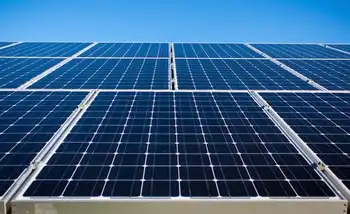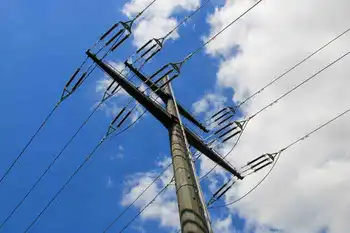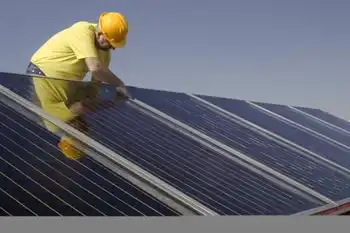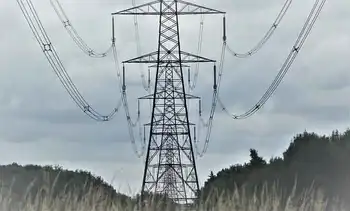Regulators vote against grandfather clause for existing solar customers
By McClatchy-Tribune
NFPA 70b Training - Electrical Maintenance
Our customized live online or in‑person group training can be delivered to your staff at your location.

- Live Online
- 12 hours Instructor-led
- Group Training Available
Today's ruling put an end to a months-long process during which the Public Utilities Commission of Nevada had been required by legislative mandate to develop long-term rates for solar customers, who source their electricity from both NV Energy and rooftop solar systems on their properties.
Solar advocates have argued that the new rates, implemented Jan. 1, eliminated the industry here, as several companies pulled operations from the state and laid off more than 700 solar employees.
While the commission's role is effectively over, parties to the case have 30 days to appeal the decision in District Court. Solar advocates have also pledged to fight the decision with a ballot measure that would bring back the prior rates and have urged legislators, before the November general election, to convene a special session to propose a short-term fix.
For nearly a year, legislators and regulators, not only in Nevada but across the country, have been wrestling with the issue of how to integrate solar customers with the grid. Going solar is an option that has become increasingly popular in recent years, as rooftop solar technology has improved, a development that has both decreased the costs of solar systems and increased their efficiency.
In December, the three-member panel increased bills for solar customers by tripling a fixed service charge over four years. The commission also slashed the value of credits customers earn by generating excess electricity under a program known as net metering.
The commission had argued that the new rates were necessary to ensure that solar customers, who do not purchase as much energy from the grid and avoid paying some of the fixed costs wrapped into electricity rates, were not shifting costs to other ratepayers.
One of the most controversial aspects of that decision was not to include a grandfather clause. Despite requests from NV Energy and the state's consumer advocate to shield existing customers from the new rates for at least 20 years, the commission voted today against doing so. It argued that the cost shift would be unreasonable and unfair to other ratepayers.
The commission also believes that all solar customers should be treated the same.
A slight change
Today, the commission tweaked its December decision slightly. After hearing public comment that lasted three hours and turned emotional at times, the commission made a change in how the new rates would be implemented for all customers.
It increased the implementation period for the new rates from four years to 12 years, with rate changes every three years. Commission Chairman Paul Thomsen framed this as a compromise that balances the interests of solar customers and other ratepayers. "Rate-making is a zero-sum game," he said, arguing that groups of ratepayers are always hurt by different changes. He also said that this could encourage the industry to innovate. But the rate calculations would not be any different.
NV Energy charges most customers a fixed service fee of $12.75. By 2028, that fee will rise to $38.51 for all solar customers. NV Energy had reimbursed solar customers about 11 cents per kilowatt-hour for excess energy. By 2028, the value of those credits will gradually reach 2.6 cents.
Tensions at the hearing
"We want to bring solar back," Thomsen said at one point during deliberations.
Several members of the audience replied: "No you don't." That exchange characterized the tenor of today's hearing. Before the hearing, hundreds of solar advocates gathered outside the utility commission's Las Vegas headquarters, urging the quasi-judicial body once more to reconsider the new rates. They held signs with slogans, such as "Don't be shady PUC" and "Don't take my sunshine away."
Dozens of solar advocates also offered public comment. One of the more moving moments of the hearing came from Marilynn Dudley, the 7-year-old daughter of a SolarCity employee who lost his job.
"I'm speaking for all kids and the future of solar. Solar is our future," she said to the commission. "My dad and a lot of other people lost their job's because of your decision. So please PUC, make the right decision today and bring back solar to Nevada."
Additional security measures were in place at today's commission meeting. After commission staff reported low-level threats over the past week and two people were found with open-carry weapons at a hearing Monday, commission staff required that attendees pass through metal detectors before entering the office. Staff passed out leaflets saying it was a "weapons-free zone."
"This has nothing to do with the order," said Lina Tanner, the commission's general counsel. "It has do with keeping the public safe and the public servants who work at the commission safe."
What's next?
One solar company, Sunrun, which pulled the majority of its operations from the state, has already announced plans to sue the commission. "This decision is clearly unjust and unacceptable for Nevadans. We will sue to overturn the anti-solar rules, and we will win," Lauren Randall, the company's manager of public policy, said in a statement following the decision.
The industry also plans to take other actions.
It plans to continue calling for a legislative session and expect momentum to pick up in that effort after today's hearing, given how popular a grandfather clause for existing customers had been. A number of state lawmakers, from Senate Democratic Minority Leader Aaron Ford to Republican Assemblyman Derek Armstrong, had asked the commission to let existing customers keep their prior rates. And today, several public commenters, conceding that the commission was unlikely to change its mind on the issue, said they would be calling on their representatives to bring back the prior rates.
In an interview last month, former Gov. Bob List, who lobbies on behalf of the solar alliance behind the ballot measure predicted that if the PUC did not adopt a grandfathering proposal, that " there would be a good likelihood that lawmakers I've spoken would be supportive of a special session."
Gov. Brian Sandoval broke his silence on the commission's deliberations after the decision. Though he did not call for a legislative session, he said the state's Committee on Energy and the New Energy Task Force should come up with recommendations "to ensure that Nevada has a stable energy policy that allows renewable energy in Nevada to continue to thrive."
Sandoval also explained his silence and criticized the decision. "While I have respected the commission and its deliberations by not influencing its process, the PUC did not reach the outcome I had hoped for," he said. "I remained optimistic that the commission would find a solution that considered the economic consequences to existing rooftop solar owners. Today's decision does not go far enough to protect their interests."
Congressional leadership, including Sen. Harry Reid and Nevada Reps. Dina Titus and Joe Heck, had also urged the commission to grandfather existing customers.














